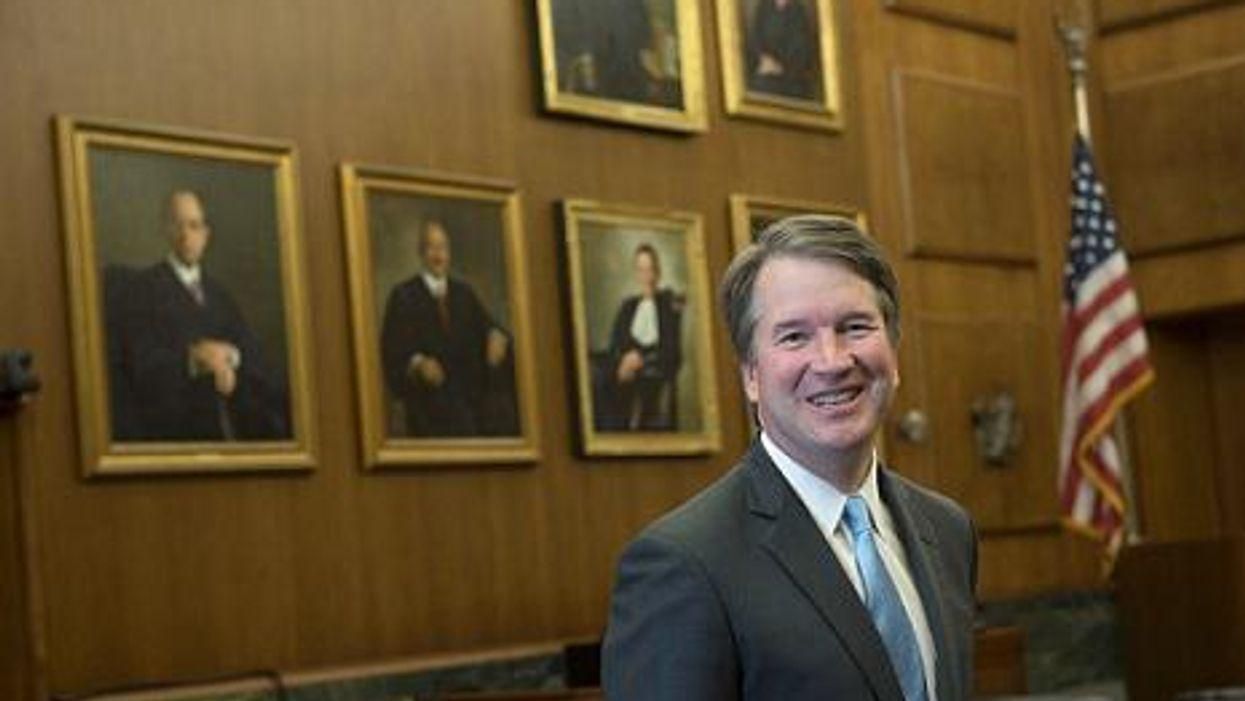Legal expert compares restricting interstate abortion travel to the Fugitive Slave Act


When U.S. Supreme Court Justice Brett Kavanaugh helped overturn Roe v. Wade in the Dobbs v. Jackson Women’s Health Organization ruling, he argued that anti-abortion laws shouldn’t be able to restrict interstate travel — that an anti-abortion state couldn’t legally prevent a woman from getting a legal abortion in another state. Kavanaugh wrote, “May a State bar a resident of that State from traveling to another State to obtain an abortion? In my view, the answer is no based on the constitutional right to interstate travel.”
In other words, Kavanaugh is essentially saying that while post-Roe Texas, for example, is entitled to outlaw abortion, it cannot legally prevent a woman from getting an abortion in neighboring New Mexico — where abortion is still legal. But not all anti-abortion Republicans see it that way; some far-right Christian nationalists, including Missouri State Rep. Mary Elizabeth Coleman, are pushing for laws that would forbid interstate travel in search of abortion. And pro-choice legal expert Elie Mystal discusses their efforts in an article published by The Nation on July 22.
“Already, Republican states have moved to propose laws that would restrict the right of women and pregnant people to seek abortions in other states,” Mystal observes. “Missouri has considered legislation, modeled on Texas’ Senate Bill 8, that would rely on private actors to restrict the ability of people to go elsewhere for care. And Texas Attorney General Ken Paxton has sent a letter to the law firm Sidley Austin threatening to bring legal action against it for its new policy of reimbursing employees who leave Texas to get reproductive health care.”
Mystal continues, “These conservative gambits shouldn’t work. Traveling freely between states is a concept so old that it predates the U.S. Constitution. Those who prefer to be ruled by historical trivia will note that the Magna Carta, written in 1215, contained protections for the right to travel. And the right to travel has been recognized by the Supreme Court numerous times over the course of American history. Courts have also ruled that the right to travel is granted under the privileges and immunities clause of Article IV and have found a right to travel under the citizenship and due process sections of the 14th Amendment.”
The attorney warns, however, that anti-abortion zealots will make an “originalist” argument against allowing interstate travel in search of abortions.
“Just like the word ‘abortion,’ the phrase ‘right to travel’ is not written in the text of the Constitution,” Mystal explains. “The same people who think that rights must have been explicitly spelled out by the Founders’ feather quills or they don’t exist could therefore make an argument that state restrictions on travel do not violate fundamental constitutional rights. And some of those people might already be on the Supreme Court. Indeed, the original Constitution explicitly denied the right to travel…. to the enslaved people this country stole from their homes and families. Article IV included a fugitive slave clause in the plain text…. Meanwhile, travel for White women was also constrained in various ways, albeit through social norms, not law, even into the 20th Century.”
Mystal adds, “It wasn’t until 1937 that the U.S. started issuing passports directly to married women, instead of the longtime practice of issuing joint passports in the husband’s name, as it was uncommon for a woman to travel alone without her husband. And, of course, Black women never enjoyed the freedom of movement White women did. The journalist and activist Ida B. Wells was once denied a passport because the government called her a ‘known race agitator.’ The right to travel, in other words, is an unenumerated right — one that is fundamental to a free and functioning society and has been recognized by the courts, but one that was not spelled out in the Constitution. Just like abortion.”
Mystal takes no comfort in Kavanaugh’s comments on post-Roe abortion and interstate travel, pointing out that the Donald Trump-appointed justice “has already lied about his support of precedent, and his statement skirts the real issues at play when it comes to interstate travel.”
“It is unlikely that a state will pass a law prohibiting pregnant people from traveling for nine months, and even if it did, there’s no real way for the state to enforce it unless the Transportation Security Administration is going to force women to pee on a stick before passing through security,” Mystal writes. “But upon their return, there is a lot a state could do to punish people suspected of having an abortion or those who helped them do it. Moreover, states might sue, or empower private-citizen bounty hunters to sue, out-of-state doctors who provide abortion services.”
Mystal adds, “In anticipation of this possibility, abortion clinic operators in Montana have begun requiring proof of residence before providing care, because they are worried about being sued by neighboring state governments. It’s worth reminding people here of the fugitive slave clause — and, later, the 1850 Fugitive Slave Act — which was meant not just to recapture enslaved people, but also, to punish the White people who might have assisted them, criminalizing their conduct and making enslaved people believe that nobody anywhere would be willing to help. Such, too, will be the goal of these new Fugitive Uterus Laws: Pregnant people who are vulnerable and lack the resources to defend themselves from frivolous lawsuits will be made to feel isolated and trapped.”
READ MORE: Even if Griswold stands, states are likely to ban contraception